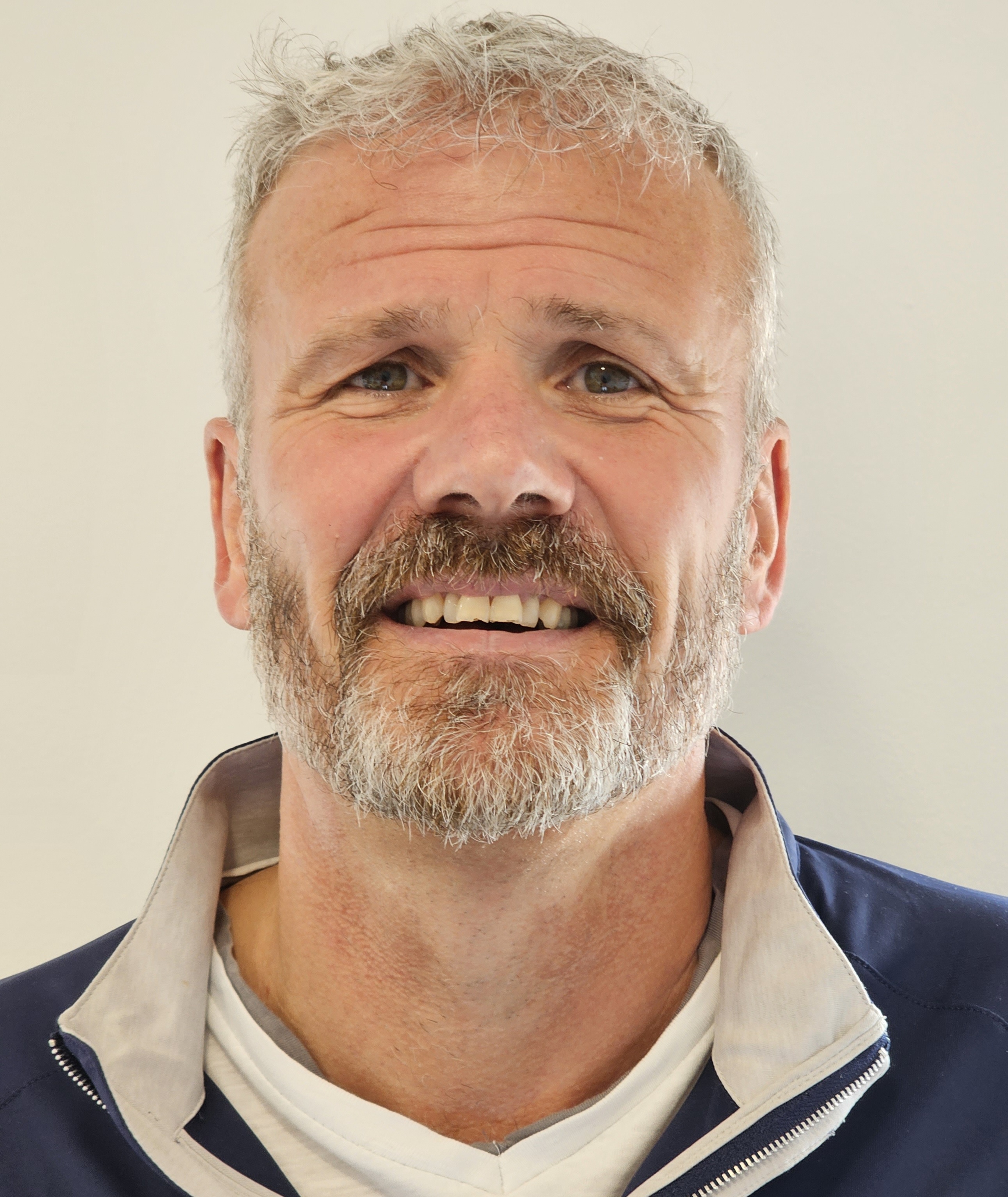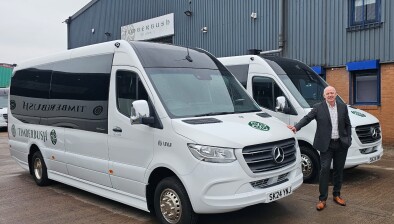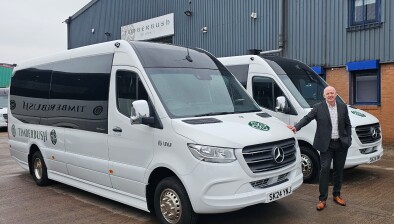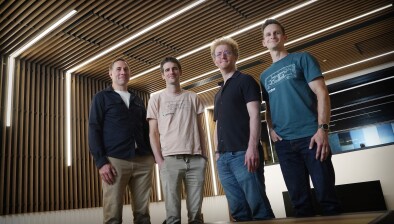Timberbush Tours announces £4m coach replacement programme

Gary Voy
Edinburgh-based coach tour operator Timberbush Tours has marked its 25th anniversary by rolling out a £4 million coach replacement programme, as the company’s founder urges the Scottish and UK governments to offer more support for the coach industry’s transition to zero emission coach travel.
The company is in the process of taking delivery of £1m of new vehicles ready for the 2023 summer season and is placing orders for a further £3m of vehicles over the balance of this year and into 2024 — a total investment that will exceed £4m.
Timberbush has worked closely with Coach Traders Limited, the Scottish agents for bus and coach manufacturer, UNVI to provide its latest intake of high specification 16-seat Mercedes coaches and similarly with MAN for its larger 53-seat coaches, sourced directly from manufacturer.
Whilst these vehicles are some of the most fuel efficient and clean on the market, the reality is that Timberbush – in common with the wider coach tour industry – is not yet able to invest in suitable zero emission vehicles. The firm has said that it continuously commits to a spending and investment principle where a strict environmental policy is mandatory within every procurement decision.
The reality at present, however, is that options for viable vehicles that could allow a transition to zero emission coaches are almost non-existent. Nor is there adequate infrastructure to support them even if there were.
Gary Voy, founder of Timberbush, said: “There has been government support for the urban and rural bus industry - completely distinguishable from the coach travel market – as many embark on a shift to both electric and hydrogen vehicles but so far, there is lack of serious support for the coach travel industry to do likewise. Until very recently, the coach industry had not been recognised as a key part of that transition.”
Through the Energy Saving Trust, studies of coach tour operators including Timberbush, were commissioned to better understand their needs in transitioning towards a zero-emission fleet.
This study considered routes, operating model, fleet make up and replacement plan, charging infrastructure and suitable zero emission alternative vehicles. The simple aim to identify ‘blockers’ to progress. These included the lack of suitable, viable and affordable vehicle options and the sparse network of charging facilities. In time, these could then be targeted for proper development.
The study reaffirmed what most of the coach tour industry already knew, but now with greater evidence, that there is a long road ahead before zero emission operations can be achieved. Moreover, there needs to be a much greater recognition of what difference the coach industry makes to passenger transportation, and not just bus travel, as an alternative to cars.
Mr Voy has questioned why both Scottish and UK governments have stated ambitions for achieving Net Zero, but there is no real timetable in place for either to look seriously at what the Coach tour industry needs to make the transition to a fleet made up entirely of zero emission coaches.
Investments being made now by Timberbush in fleet replacements, could have been invested in Zero emission vehicles had the key dependencies been viable. Regrettably, many other operators face the same challenge meaning a missed opportunity which will only further hinder the transition.
Mr Voy added: “To reiterate, the challenge for the coach industry ahead of the phasing out of “non-zero emission vehicles”, expected in 2040, is the availability of vehicles and supporting infrastructure. We need quality, affordable, mass market vehicles that are fuelled by alternatives and critically, have adequate range.”
He concluded: “A coach operators’ ‘green’ credentials play an increasingly important part of customer choice. We therefore need to keep moving forward doing all we can and persuade government to heed our calls and to respond to our concerns.”








